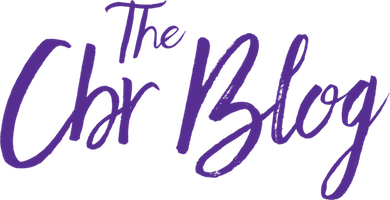CBR is committed to advancing newborn stem cell research for conditions that currently have no cure. With our support, researchers at Sutter Medical Center conducted an FDA-regulated clinical trial to evaluate the safety and preliminary effectiveness of cord blood as a potential treatment for Autism Spectrum Disorder (ASD).1 We are hopeful that these study results will open the door for more research opportunities in the future!
What is ASD?
ASD is a childhood developmental disorder that impacts language abilities and social interactions, and can cause involuntary, repetitive behavior.2 In the United States alone, about 1 in 68 children is currently affected by ASD.3 An exact cause of ASD still has not been discovered. However, some research suggests that a dysfunctional immune system may play a role in the development of some cases of ASD, causing damage within the nervous system and developing brain.2,4 Because of this finding, there is interest in identifying treatments that could “calm” this type of immune response.
Why are scientists interested in cord blood for ASD?
Preliminary research has shown that cells found in cord blood have the ability to modulate or reduce inflammation and certain immune responses as well as travel to sites of neurological injury.5,6 Because of these properties, cord blood may be a potential therapeutic target for ASD.
How was cord blood studied in this clinical trial?
A recent study by Sutter Medical Center evaluated 29 children with ASD who were administered their own cord blood, to assess safety and preliminary treatment effectiveness. Every child in the study had their own cord blood stored at birth with CBR. First, the children were given either an infusion of their own cord blood or a saline solution-based placebo and were then monitored for 24 weeks. At the end of 24 weeks, the children who had received cord blood were given saline solution, and the children who had received saline solution were given their own cord blood. They were then monitored for another 24 weeks.1,7 Research is still in early stages, but we’re excited about the insights that will be gained from these trial results!
What were the results, and what are the next steps?
The study demonstrated that an infusion of a child’s own cord blood was safe and feasible, which is an important step. Researchers believe that these findings warrant further research to see if cord blood may be an effective treatment for ASD.1 Fortunately, a new, larger study by Duke University has already begun.
- Researchers at Duke University are currently conducting a study to test the effectiveness of cord blood therapy in a greater number of children with ASD8 (recruitment for this trial has ended). If you are a CBR client and would like to learn more, click here to connect with a certified genetic counselor
- CBR continues to keep our clients informed and connected. We encourage our clients to participate in the Family Health Registry, where we identify conditions common among CBR families, such as ASD. This helps us learn more about the conditions and connect individuals who are candidates with clinical trials studying new potential treatments. If you are a CBR client, take a moment to log in to your client center and complete your Family Health Questionnaire
Sources:
- Chez M, Lepage C, Parise C, Dang-Chu A, Hankins A, Carroll M. Safety and observations from a placebo-controlled, crossover study to assess use of autologous umbilical cord blood stem cells to improve symptoms in children with autism. Stem Cells Translational Med. 2018 Feb 6. http://dx.doi.org/10.1002/sctm.17-0042
- Gupta S, Aggarwal S, Heads C. Dysregulated immune system in children with autism: beneficial effects of intravenous immune globulin on autistic characteristics. Journal of autism and developmental disorders. 1996 Aug; 26 (4):439-452.
- Centers for Disease Control and Prevention. Accessed August 2017. https://www.cdc.gov/ncbddd/autism/data.html.
- Goines P and Van de Water J. The immune system’s role in the biology of autism. Current opinion in neurology. 2010 April 23; 111-117. doi:10.1097/WCO.0b013e3283373514.
- Sun JM, Kurtzberg J. Cord blood for brain injury. Cytotherapy. 2015 June; 17 (6):775-785. doi:10.1016/j.jcyt.2015.03.004.
- Lv YT, Zhang Y, Liu M, Qiuwaxi JN, Ashwood P, Cho SC, Huan Y, Ge RC, Chen XW, Wang ZJ, Kim BJ, Hu X. Transplantation of human cord blood mononuclear cells and umbilical cord-derived mesenchymal stem cells in autism. Journal of translational medicine. 2013 Aug 27; 11:196. doi:10.1186/1479-5876-11-196.
- Autologous Cord Blood Stem Cells for Autism. Accessed October 13, 2017. https://clinicaltrials.gov/ct2/show/NCT01638819
- Cord Blood Infusion for Children with Autism Spectrum Disorder (Duke ACT). Accessed October 13, 2017. https://clinicaltrials.gov/ct2/show/NCT02847182.



Amazing!
Please keep me posted on the advances on this research. I wish to see a solution for Autism.
These are much needed studies! I contacted Dr Kurtzberg at Duke about 7 years ago asking why Cord blood cells as a potential treatment for ASD was not being studied. Now that there is private funding, studies are finally underway- hopefully this will lead to important steps toward treatment of so many kids. Rates of ASD are now estimated as high as 1:36.
Thank you for keeping me in the loop.
Hello, I am a cord blood client who is interested in this study. I have a question does it have to be the patients own core blood or can it be his/her siblings core blood ?
Hi Julie,
Thank you for checking. This trial required the use of the child’s own cord blood. However, there may be other trials in the future that allow a sibling’s sample to be used. Be sure to follow our blog for updated information.
was any trials yet done with siblings core blood?
Hi Lori,
Thank you for your question. While this trial required the use of a child’s own cord blood, there are certain conditions when a sibling’s cord blood may be a more appropriate option for potential treatment. To learn more, visit https://www.cordblood.com/best-cord-blood-bank/stem-cell-therapy/advancing-stem-cell-therapies or call us at 888.240.1996.
Are there any current studies happening? we have cord blood & tissue stored and would definitely be interested for our son with autism.
Hi. We’re sending our best to your family. 💜💜 We’d recommend you complete or update your Family Health Questionnaire. This way, you’ll be among the first to know about emerging research relevant to your child’s diagnosis and newborn stem cells. If you have more specific questions, please fill out this form in your online client account to connect with one of our clinical specialists: https://www.cordblood.com/client-center/#/login?page=adv-science